Women in Technology: The Influencer Way
February 29th, 2016 by
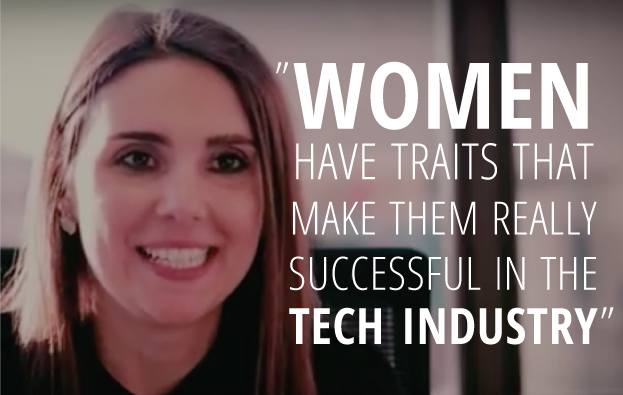

I actually never seemed to notice that our staff is over 70% women until it was pointed out to me recently; however, I’m not surprised, since New Orleans was ranked one of the best cities for women in technology in 2015. While it’s no secret that many people still view the technology field as a “guy’s world,” there are those of us who predict 2016 to be a big year for women. As usual, Search Influence is one step ahead of the industry, with a female COO/co-founder and women in upper management of almost every department. Here is a chart that outlines the percentage of women in each department at Search Influence:
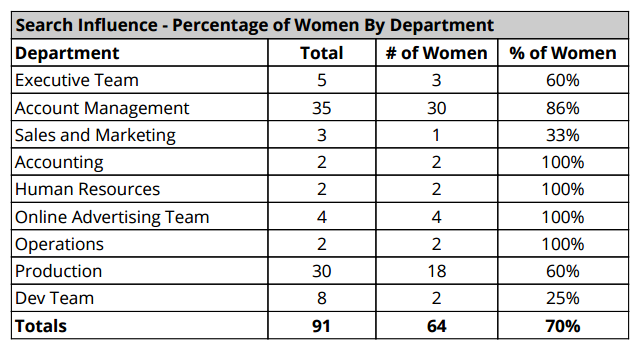

This month, I sat down with a few of the inspiring women who make up the Search Influence team to learn more about why they chose their path and how they feel about the future of women in technology.
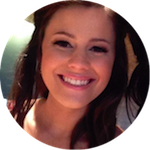



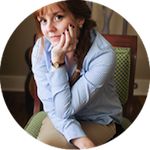

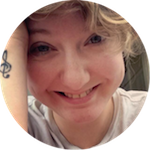

Serena Hirasawa: So, first things first: how long have you all been at Search Influence, what is your current title, and did you have any previous tech industry experience before starting here?
London Fougerousse: I am a Junior Online Advertising Associate. I’ve been here for almost 10 months. I didn’t have a lot of tech experience previous to working here, so I’ve learned all that I know from working at Search Influence. Other than personal tech experience, my educational background is in secondary education and literature, so there were a lot of tech innovations for the classroom that we were focused on and kind of using social media in the classroom to get people more interested in and up-to-date on digital technology.
Jordan Polhemus: I am an account manager. I’ve been here for about two and a half years. I had a little bit of coding and WordPress experience before working at Search Influence and several years of marketing experience as well.
Mattie Kenny: I’ve been with Search Influence for three and a half years. I am a web developer, and I did do a lot of Internet installation for small businesses when I was in high school; that was my job. Which is not remotely actually involved in the tech industry.
Mary Silva: I’ve been at Search Influence for almost three years now; I am an Internet Marketing Team Lead on the technical side of the Production team. My tech experience before Search Influence was a few different things. School wise, I was an online marketing-focused major at Tulane. I was really fortunate to be in college right when that was becoming part of the curriculum. I also worked part time for the Tech Connection Apple Store and managed their website. I did all of their freaky web-dev stuff that they trusted me with. SI is my first formal job experience, and my job story is actually pretty funny—Will Scott [CEO] came to speak to class about SI and sort of side-note mentioned that they needed new website photos, and my professor interrupted him to say, “We have a photographer in this class! Mary, raise your hand.” So I raised my hand and was real embarrassed but then I thought, actually, this company seems really cool. So after class I stayed behind and went up to Will and said, “Yeah, I could do your photos for your website, but also I’d just really like to work for you. I know you don’t have any part-time employees, but would you consider it? Because I’d really like to work for you guys.” So the next day I got a phone call from the Search Influence production manager at the time asking me to come on in, we’d like to consider you for a part-time position even though we’ve never done this before. And that’s how I got the job.
SH: What other kinds of online marketing classes and projects did you do in college?
MS: We had a really cool class where we actually got to run paid ads. I can’t remember the name of the course now, but we essentially came up with a business idea. Mine was to create a Yelp, but specific to tattoo parlors for people to find tattoo shops around the globe. We made a Facebook page and website for it and then we ran paid advertising for our business to see how it went. It was really cool, we were put into groups of two to three people and worked together to do some A/B testing for ads to see what worked for what types of businesses, and in the end we were able to compare everyone’s experiences to see what was successful. So that was a really cool experience that you don’t typically get in a classroom setting. We also had a class through the same professor that worked to get you AdWords and Analytics certified, so that was nice too. Good experience in college.
SH: When is the first time you each became interested in or considered the technology field as a viable career option?
MK: The first time I considered it was probably in high school. When I went to college, I was considering majoring in computer science, but opted for political science, because…reasons. I probably made a misstep there, but I thought about it while I was in college.
LF: I can’t say that this was really something that I was specifically looking for—I’m so happy I found it. But I’m always interested in pushing boundaries and pushing expectations that people may have of myself, especially as a woman. And really, any time you can combat any stereotype is a step in the right direction for sure.
MS: I’m on the same page as you, London; I sort of fell into it. I grew up using my dad’s computer, and in high school, I had all kinds of guy friends who were into building computers and coding, and I always thought it was cool but felt like it was a “dude’s thing.” I was not really asked to be a part of that—but I wanted to. Then I went to college and was a neuroscience major, because I was a science nerd, and that was more of an acceptable field for both women and men at the time. And then realized that I wasn’t really trying to be a neuroscientist—it was a little more difficult than I expected. So, I thought, “Business school makes sense. It’s more practical,” and once I was there I realized that, oh, I could do this techy stuff that I loved and also combine it with business in the online marketing field. So it was sort of combining a practical field with something I loved, which was cool.
JP: It’s just gotten really valuable now. I mean, 10 years ago, people weren’t spending the money to have an in-house marketing person or at least an agency to do this stuff, and now they think, I have to do this because it’s so important and all of my competitors are doing it. So now, the training that we have and the work we do at Search Influence is so much more valuable, and clients see that.
MS: It’s really integral to a business’ success these days. Whereas in the past it was like, “Oh, it would be nice if we could afford a budget to get a nice website,” but now, you have to get a nice website and get it together online.
SH: I definitely agree with the fact that everything is moving in that direction—if you don’t do it, then you’re not going to be successful. Do you have any female role models in the STEM field that you look to now for motivation and inspiration or from when you were younger that really sparked that interest?
LF: I did not grow up with any rigid stereotypes. My mother is a huge role model for me and she is an HR manager in the oil and gas field, and I grew up with a lot of kids whose mothers stayed at home. Which, there is nothing wrong with that—it’s their choice—but I didn’t grow up with the common refrain of someone saying, “This is what women do, and this is what men do.” I think that background is something that has really encouraged me to say, “Well, I can try this or do that.”
MS: For me, it was also similar. I wouldn’t say that I necessarily have a role model in STEM, but my mom was the president of a publishing company growing up and she was a working woman, you know, in the office every day. So it was cool for me to see growing up not only that a woman could work in offices—obviously women do that—but to be in such a position of respect and authority and at a fairly young age. So that’s sort of who and what was my role model growing up, that my mom was awesome so I could be just as successful.
JP: That’s funny, because that’s what I was going to say. I grew up with a really powerful and strong mom in the workforce, and it wasn’t so much an option [for me] but more like, “You are going to kick butt at what you do and work really hard at it,” and I had a huge amount of respect for that. Both my parents are in real estate; my dad is a contractor and my mom owns a real estate company, and when everything hit the fan with the housing market around 2007-2008, their business model completely changed. They went from selling an average house for $500k down to maybe $110k, and then they had to combat that and change how their business model worked. So when I was in college, they had transitioned to selling foreclosures at that point, and every other contractor and real estate agent in my parents’ county went bankrupt—except for my parents, which was so amazing, because they were able to change what they were doing. I had a huge amount of respect for them, because in the tech industry, everything we do is going to be completely different in two years. So, the way they were able to model their business and change it opened my eyes, because I was old enough at that time to realize what they were doing, and it was all spurred by my mom; she did that. So I’m with you on the mom thing. It’s more of a business-related than a STEM thing, but I can understand that how they modeled that would be relatable to the tech industry because you always need a software upgrade or to adapt every 10 seconds.
MK: Definitely when I was younger I was influenced by Marie Curie. And also Melinda Gates, who is Bill Gates’ wife, was a big influence on me. But she was a lot less hard-science oriented and more humanitarian oriented, but she is STEM-adjacent at the very least. Those were really big role models for me.
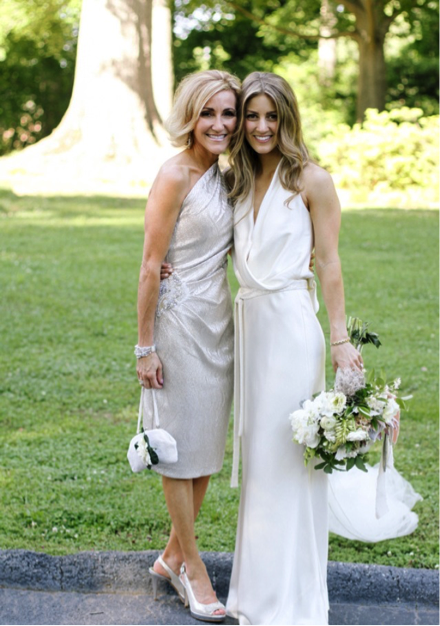

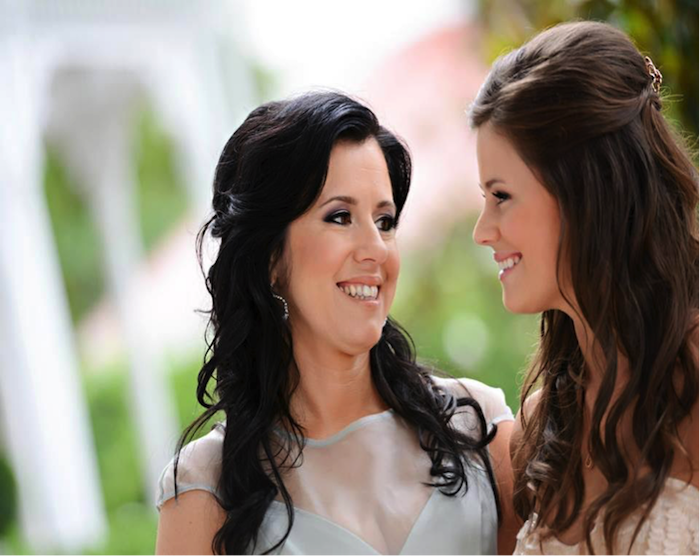

SH: It’s really interesting and awesome that three of you chose specifically your mothers and that you all had that strong role model in the home. Someone I’ve seen as a STEM figure to girls on a larger scale is Dana Scully from The X-Files, especially when the show was first on the air [in the 90s and early 2000s]. She influenced so many girls across the country to pursue those kinds of interests, because she was a doctor and an FBI agent and super successful in those positions.
LF: And the gender roles on that show are so interesting because they do make a big deal about it. We would watch a show like that created today and it wouldn’t be explicitly talked about, the fact that she was so strong. That and Silence of the Lambs; it’s kind of like a similar detective-y play on a traditional men’s role.
MS: I think our generation has been really fortunate in that maybe before us it was really important to choose a female role model, in particular in the STEM field if you were interested in that, but I feel like we’ve been fortunate enough to grow up in an era where things were changing to the point where it’s kind of all around us. Like, we saw a lot of powerful women in a lot of different places in society, so it’s been a lot easier for us to not have to pick a role model but say that we’re surrounded by amazing women, and we can do that too.
SH: So based off of that notion, why do you think it’s important for women and girls to pursue their interests in STEM? What do you do to encourage young girls to explore this growing industry?
LF: You can’t be what you can’t see, so while we have our mothers as fantastic role models, and my mother’s position is not directly related to the STEM field, if I am to continue in this and pursue it my daughter would have a role model in the field. It’s just the more and more people push themselves into areas that are less populated by women, the more and more you’ll have people perceiving that it’s normal for a woman to do this and that it’s not stereotype-breaking.
MS: I think it’s important to encourage girls at a younger age, because I remember being really young, probably like fifth grade or something, and being in these gifted classes because I was a big math nerd growing up and they were always putting the guys in the spotlight for succeeding in math even though [the girls’] grades were technically just as good, but that was sort of just naturally how things occurred in the classroom. And when I went to high school, I went to an all-girls school. I was just as successful as I was when I was in mixed-gender schools, but I was able to be the math president of the honor society because there wasn’t this sort of natural occurrence of putting guys in the spotlight. So I feel like being aware of those accidental natural ways things happen in the classroom at a young age and how that can influence the mindset of young girls is something we should be better at and self-aware of.
JP: If you think about it from a business perspective, let’s say you have 100 people in a room in the STEM field and only 10 of them are women, but the demand in a business is the same. Fifty percent of the people out there purchasing are women, probably more than that, because usually women make the purchases in the family. If you can make the website or business that is focused towards women and you are a woman, you have a huge advantage over all the other men in the room because you are able to create products for women unlike men could. You would be able to establish yourself as the expert with a lot of demand and very little supply for women who are web designers or graphic designers or brand and marketing managers, because if I have a product for a women and I’m creating a marketing team, I’m probably going to want to have a woman head that because they will be able to see it differently than a man.
MS: Diversity definitely provides a lot of perspective for businesses, not just gender-wise but ethnicity, background, income, and everything. Diversity is so important for a business’ success because you can’t have a group of like-minded individuals running a business, or you won’t be able to see the obstacles to overcome. For young girls, I think it’s important to recognize the competitive advantage that they have to offer from their background and everything to understand why you as a unique person have something special to offer to a business.
MK: Nothing is off-limits because of gender. Or age, ethnicity, or where you grew up. If you find an interest, pursue that interest until you stop being interested in it, and you realize that something else suits you better.
SH: I definitely think it is really important to encourage young girls. I read this once in an article a few years ago, and I try to put it into practice as often as I can, that when you talk to young girls that you see, even the little girl you see on the streetcar that looks at you and you say “Hi,” I always try to ask them a question about their interests or related to their intelligence as opposed to commenting on their appearance. I try to reinforce that yes, you are beautiful, but there’s so much more, and your brain is great too, just to cultivate that and understand that concept from a young age.
MS: It’s those little social cues that we’re just used to, and it’s important to acknowledge and be aware of.
SH: Do you currently participate in any STEM activities/organizations outside of work?
MS: I work with Longue Vue House & Gardens, which puts on a yearly STEM event, Day of the Girl, for young girls in the community ages 7-12. She brings in women from all kinds of STEM fields and has them talk to the girls about what they do and their industry. I had a chance to do that a few months ago, and it was really cool because she had me from Search Influence in the technology field, and she had a female engineer from Shell, and a women who worked for the water-cleaning industry to incorporate science there, and then she also had an Olympic gold medalist in swimming. So she had all of these women from New Orleans talking about what they do very candidly and exposing them to, “Hey, this is what they do. Just keep that in mind and know it’s possible.” I think it takes as little as that interaction to ingrain it in little girls that you can do whatever you want, and yeah, if you want to be a stay-at-home mom, that’s great too. But you’re still able to expose them to great values and opportunities. I’ve also been getting into Girls Who Code, so I’d like to be part of hosting workshops where I could teach them how to code like basic front end stuff.
MK: I do computer, math, and science tutoring to teach girls to code in the Marigny, specifically targeting little girls of color. I’ve been doing that a little less than a year. I started following @BlackGirlsCode on Twitter and ended up getting together with some other Nola Women in Tech people.*
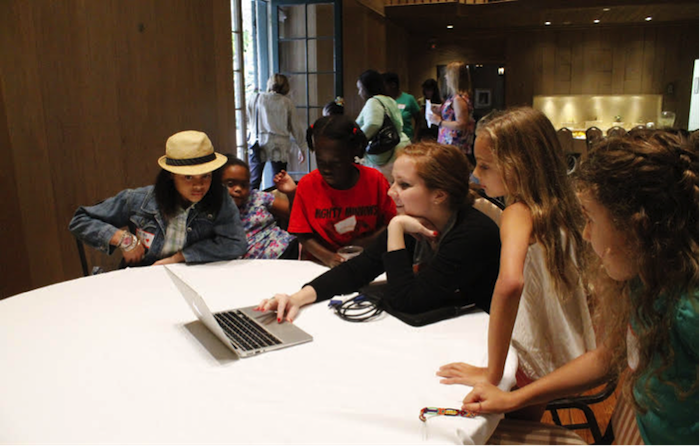

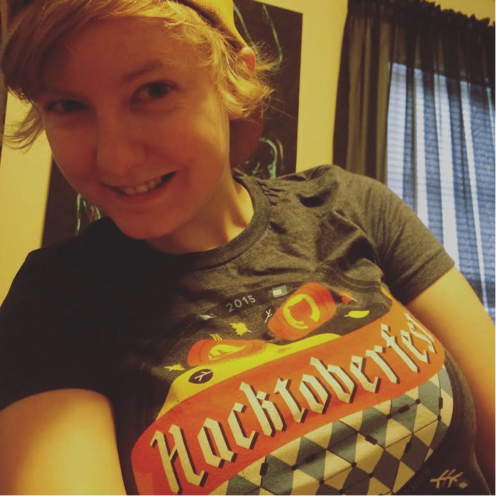

SH: In an ever-changing digital world, how do you feel like a job in the tech industry has impacted your life outside the office?
JP: It’s made us so relevant by making us understand how a business works and how to utilize the tools that we have. Also, the structure of Search Influence makes us so used to change, which is kind of an oxymoron, but it makes us get used to always changing our systems, which happens so often in the STEM industry. As a whole, you have to be used to it, and if you’re not then you’re not relevant and you’re not valuable—to an employer or an industry.
MS: I think as a person I’ve also become better at handling when things go wrong. And inevitably, since our industry changes so much, things go wrong more often than you’d expect. So I feel like when things go wrong I take it a little more lightly because I know I can handle it.
SH: Do you have any tech-oriented career goals (i.e. give a TED talk, build your own computer system, visit Google Headquarters, program an app, etc)?
JP: I have a whole doc dedicated to my career goals! Some of them are personal goals, but they’re still things that I’d like to do. I’d like to be really great at developing things from a coding perspective. I’d also like to work more in Photoshop and Illustrator. Specifically this year, I’d like to become a guest writer for an industry blog like Search Engine Land, and a long-term goal of mine is to do a Moz talk, but it takes a couple years to pitch something like that.
MS: It’s weird because I just accomplished one of my big personal goals which was building my own website. I’m usually a pretty modest person, and this is the first time in my life where I feel like I really want to toot my own horn because I built a multi-page website using JavaScript and HTML and CSS and external style sheets and everything that I wanted to accomplish with building my own website in the course of like four to five months. I was fortunate enough to take the Tech Talent South coding class, and that is what incited it for me. My professor made fun of me because I was like, “Okay, this is all well and good, but I actually want to launch my website now,” but the class we more like teaching you the fundamentals of coding and the background, and I was like, “No, no—I need to build an entire website,” which I was able to do! I have to figure out what’s next on my list—maybe building a site for someone else.
LF: Right now, I’m currently working on several certifications. I have AdWords and Bing, but I’m working on Google Analytics and stuff like that. One thing I’m trying to focus more on, since I’ve been here for almost a year, is just learning just more about what we do from a full-circle perspective. I really know what I do in my department, but I’d like to really get a better understanding of what the technical team does and account management and the developers to see how they all work together.
MK: I’ve been writing this water app in multiple different programming languages as I learn them to record how many cups of water you drink every day. Also, I did Hacktoberfest this year from Github and DigitalOcean, and my t-shirt is pretty awesome. I’d like to become a more full-stack oriented developer and have a more holistic understanding of development.
SH: Are there any blogs, websites, resources you use to expand your knowledge?
MS: The Moz Blog is my go-to. Every Friday, I look for my email to see what’s new this week.
JP: I also love Moz. I actually read, pretty religiously, Harvard Business Review. I only do it once a week, and it’s more focused on business practices and things like that. I also like that within that they have financial sections, which drives a lot of business decisions. Search Engine Land is great, too.
MK: Github is always a great resource. There’s tons of great free programming materials and books available. Definitely Stack Overflow—when in doubt check there, because someone has already had the same question, and someone else has had the answer. It’s kind of like a Yahoo Answers for programmers, but it also has sections for, like, sci-fi, so if you have a question about Star Trek, you can ask it there, which I definitely have before. The Women in Tech subreddit is always nice, definitely for support, and the Women in STEM subreddit is nice to have people to talk to and bounce ideas off of.
SH: Last question: what is your favorite app on your phone right now?
MS: I’m terrible: my favorite app right now is a cat app, Neko Atsume. It’s a Japanese app that is so basic, like, you put food out and toys out, and cats come visit you, and you get to name them and take pictures of them playing with the toys you leave out for them. They also leave you gold and silver fish, and as you collect fish, you can buy more toys and food for them. It’s ridiculous but wonderful.
JP: As I’ve had to delete several apps recently to make room on my phone for pictures of Phyllis, I’d say that my favorite app is my camera just so that I can take pictures of my dog. #phyllisforpresident
MK: I really like Venmo so I can easily give my friends cash. I don’t have too many sweet apps. I don’t even have Facebook on my phone. But then I see people who have like a million apps and I’m like, what the heck? My phone is super utility oriented.
LF: I am a grandma at heart, so my NPR One app gets a lot of use. Also, the Overdrive app, which you can sync to your library card and you can download free e-books and audiobooks and I love it.


Serena,
Love this! Thanks for writing it.
It amazes me that this is an area where we’ve been able to lead since it wasn’t necessarily on our list. We’ve been very lucky over the years to hire a number of very smart, capable hard-working people — most of whom happen to be women.
When I think about why, it’s obvious. It’s leadership by example. Angie Scott, our COO and co-founder shows what’s possible as a wife, mother and leader of a fast-growing company constantly striving for improvement. It’s harder for women, especially those who want to work and have families to stay in a fast-moving workplace and we want to assure we remove as many barriers as possible.
Don’t worry guys, we’ve know we’ve got a lot of smart, capable hard-working men around, too we appreciate y’all too.
Serena, you did such a great job with this post! Also, so proud to have Mary on my team!